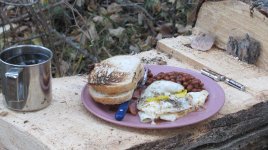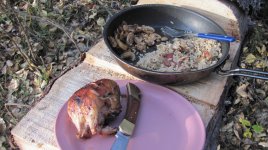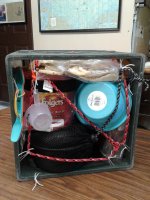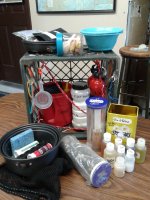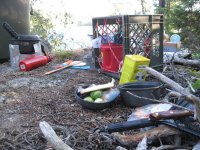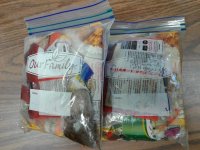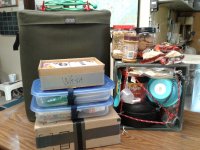Someone on this site or another, responded to a similar question earlier this year with (paraphrasing here)
"You people wash dishes while camping?"
One more vote here for the the eat-it-clean then wipe it with PT/TP method. I really like my Morsel sporks for getting every last scrap
https://morselspork.com/ The XL is specifically made for commercial freeze dried meals.
I will burn the paper in a large fire. I think fire size is important as it ensures proper, complete incineration. This isn't as important with lone plys of TP as it is with other combustible trash. Often I'll make a smaller fire for cooking and when I do I'll save the combustible trash for another day with a larger fire. Sometimes that next large fire is at home.
When solo I'll skip the paper towels most of the time. I cook, the canine does the dishes. I'll do the dishes when he cooks.
When the jetboil or cast iron gets dirty I will boil it clean with a small amount of water (after EIC and wiping with paper) I will dump a small amount of grey water into a large fire, otherwise it gets the exact same treatment as my dinner will the next morning be that a cat hole, wag bag, or latrine. I do not like to put anything into the water whether it's a lake, ocean, or river and regardless of elevation.
I travel with one group most summers that washes dishes far from the water's edge and dumps the grey water only after filtering it with the morning's coffee filter. The coffee filter will then be packed out with similar refuse. Food scraps are inevitable with a larger group.
I do believe it ironic how most of the trash we painstakingly pack out ends inevitably ends up in a landfill which was once a piece of pristine wilderness itself. Think about that next time you are re-packaging into ziploc bags. Heck, think about it next time you're carrying the trash to the curb. Parchment paper, freezer paper, coffee filters and reusable containers perform many of the tasks that I once used plastic bags for. It sure makes pancakes more complicated though...
I think it's easy to be lax on these rules when you're traveling in truly remote places but we must remember that there are over 6,000,000,000 of us on this planet these days. Imagine if just 10 of them showed up tomorrow and did the same thing you just did.


